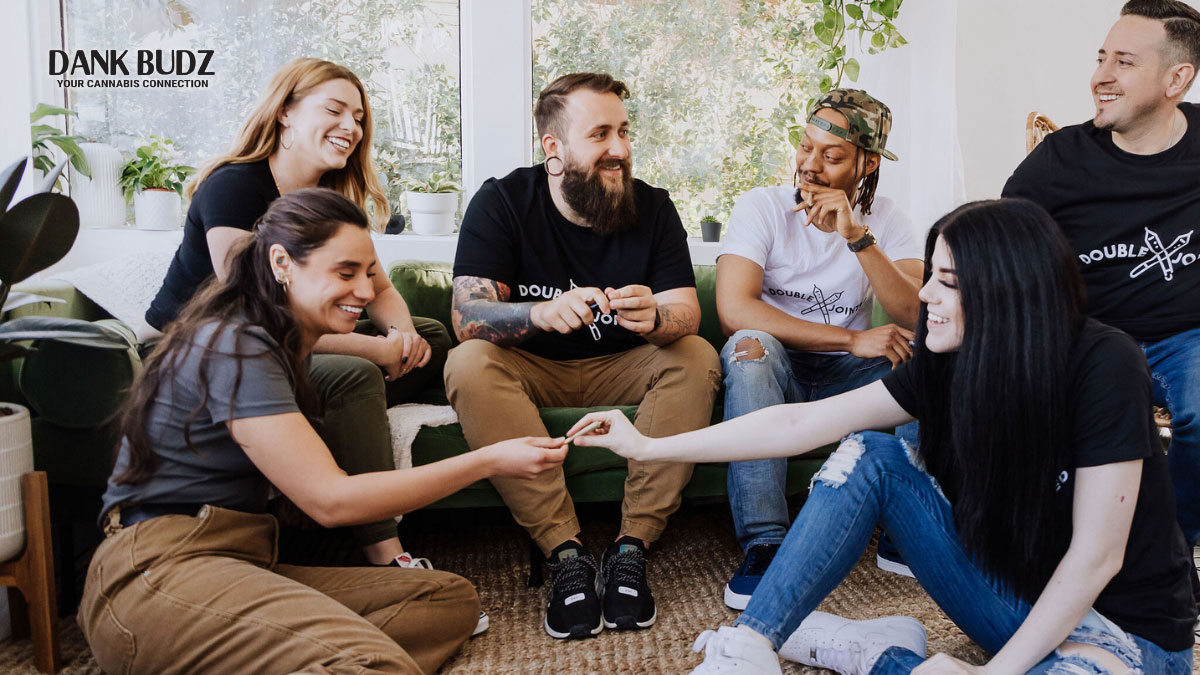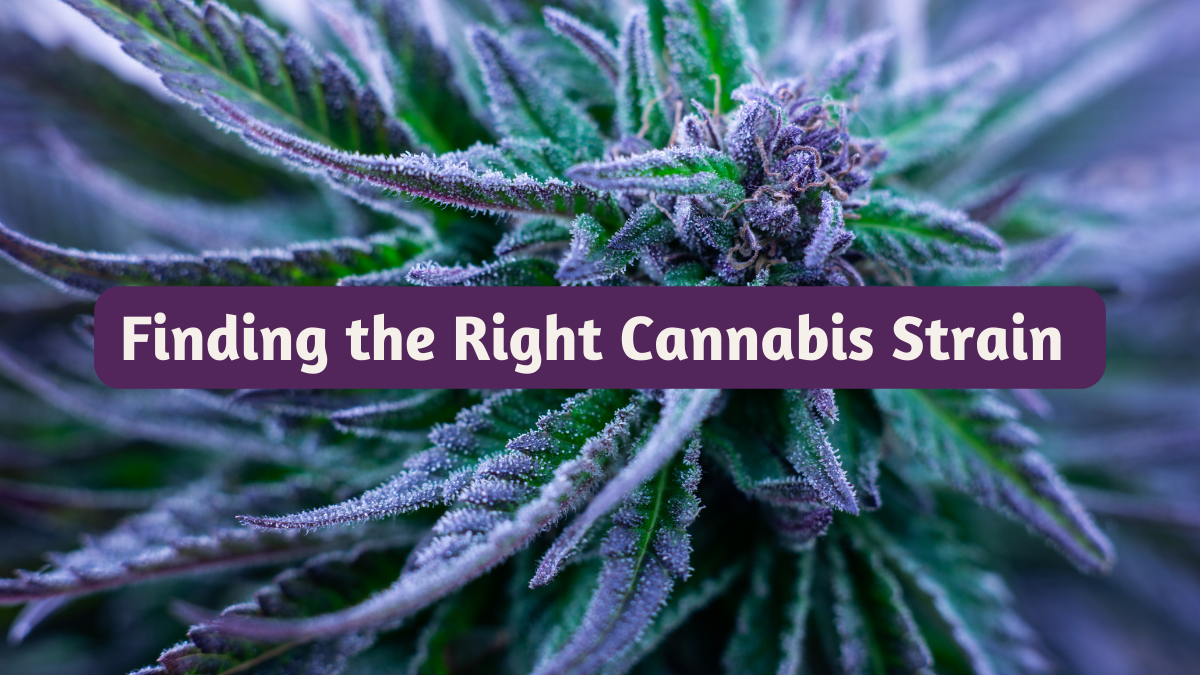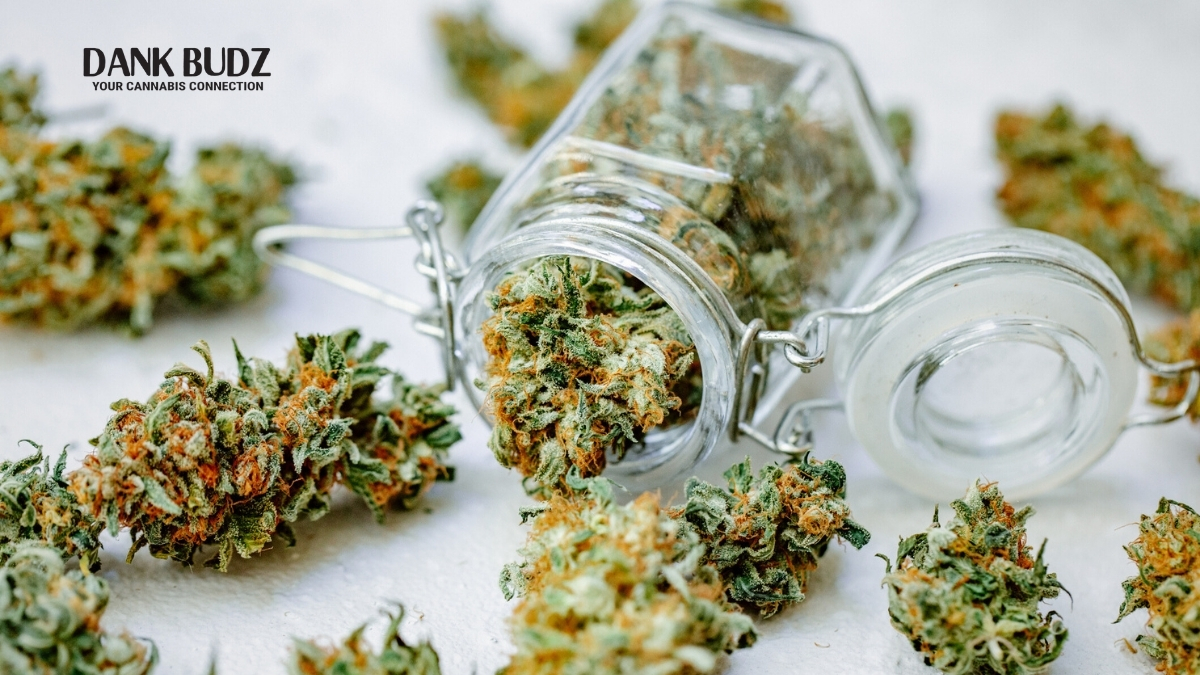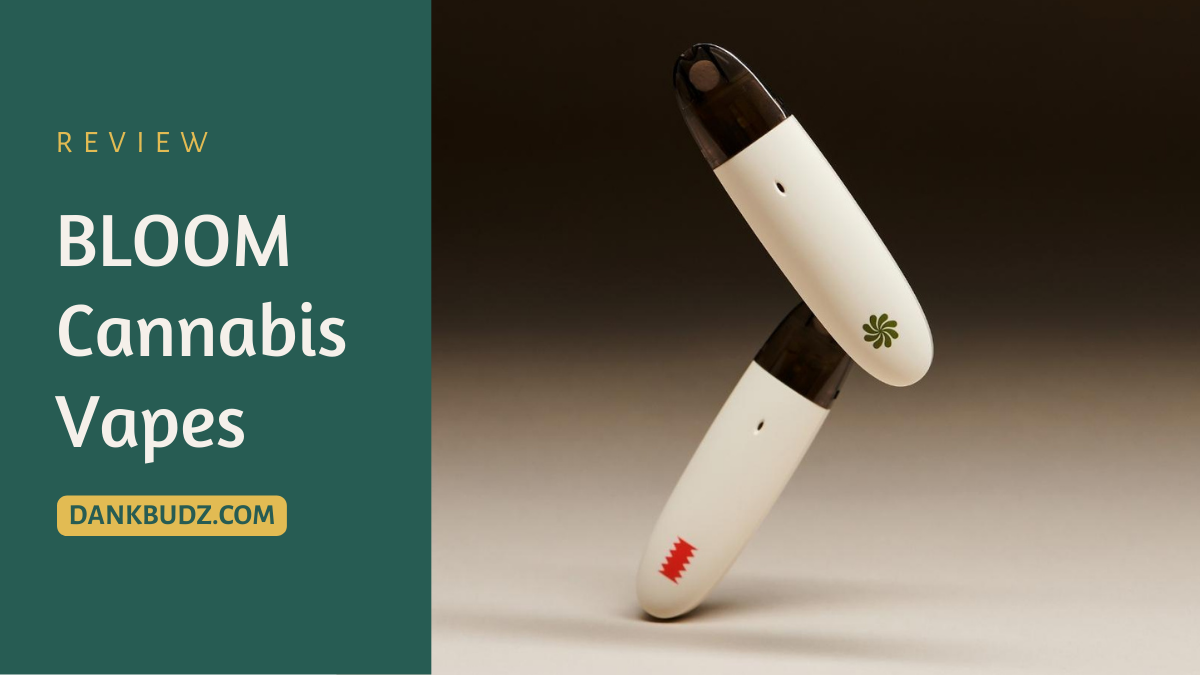
Ask anyone who has ever used cannabis products, and they’ll likely tell you that one of the only frustrating aspects of cannabis use is the stigma that still lingers in many parts of the world. Often, the most pervasive part of this stigma is that people tend to misunderstand the type of person you are, attaching negative assumptions to words for cannabis users like stoner, canna mom, and more. Let’s explore cannabis stereotypes, their origins, and the reality of cannabis users.
The Origin of Cannabis Stereotypes
These stereotypes are unsurprising to anyone who has spent time learning about the history of cannabis in the US. Once considered a helpful medicinal plant, negative portrayals of cannabis in the media and in government circles began to change citizens’ perceptions of cannabis – at least partially to disparage immigrant populations who used the plant. By the time the government outlawed cannabis in the 1930s, public perception of cannabis and marijuana users had become negative, even generating films like Reefer Madness to extend the cultural backlash. Over the years since this perception has fluctuated from one of disdain to one of uncertainty.
Today’s marijuana user stereotypes tend to come from the media’s portrayal of cannabis over the last several decades. While some newscasts and after-school specials warned people about the dangers of cannabis, films and television shows have depicted people who use cannabis as low-life individuals who only seem to complicate things for the main characters. Even more recent films and television shows that have depicted cannabis use with a less negative perspective tend to portray cannabis users as stoners who are lazy, unproductive, or just plain silly.
Despite continuing legalization and decriminalization efforts, while the stigma surrounding cannabis is slowly fading away, there is still progress to be made. Research regarding how cannabis can be beneficial in healing inflammation or relaxing the mind is released on a regular basis, but very few media depictions of cannabis use show the reality of today’s cannabis users. As a result, many of us have had experience with family members or friends who remember films such as Dazed & Confused or The Big Lebowski and assume everyone who uses cannabis wants to become a stoner.
While an entire stoner subculture does exist, it’s important to defend yourself against these stereotypes if they don’t fit you. Cannabis users are actually quite diverse and use cannabis for various reasons.
Let’s explore the wide range of what marijuana users really look and act like.
The Reality of Cannabis Users

People who use cannabis were often referred to as stoners in the past, regardless of how or why they chose to partake, a term commonly associated with laziness or apathy. However, the reality is that cannabis users are diverse, spanning several professions, age groups, lifestyles, and more. Cannabis uses are nearly as diverse, and many choose to use cannabis as a way to cope with a physical or mental health condition or even just to relax. Unfortunately, the negative stoner stereotype persists despite the many successful, professional people who publicly discuss their cannabis use. For example, celebrities like Martha Stewart, Willie Nelson, Kirsten Dunst, Lady Gaga, and Morgan Freeman have openly talked about their cannabis use, joining celebrities who have contributed to the stoner vibe like Matthew McConaughey, Seth Rogen, and Snoop Dogg.
In addition, consider the demographics of the everyday people who regularly use cannabis for therapeutic, relaxation, or recreational purposes. Professionals across all industries, a growing number of athletes, and even senior citizens are more likely to use cannabis than ever before. However, even these individuals experience stereotypes – perhaps none so backhanded as that of the “canna mom or “cann mom.”
While society is getting much better about conceding that adults should be able to live their lives and utilize the therapeutic or relaxing routines they enjoy or prefer to address their circumstances, women with children are not often given this same understanding. Moms who use cannabis often experience disdain similar to that experienced by “wine moms.” People assume the mother doesn’t enjoy her life, is angry with her children, and worse, neglects them to drink more wine. Similarly, so-called “canna moms” are often assumed to be exposing their children to marijuana smoke, unproductive, lazy, neglectful, or simply just high 24/7/365. However, there’s much more nuance to a mother who may enjoy a glass of wine regularly, just as there’s diversity among mothers who enjoy cannabis for recreation, relaxation, or as a medical therapy.
It’s important to remember that these are only stereotypes, and as we learn more about cannabis, we can more effectively debunk these claims from others who may know nothing about cannabis.
The Impact of Stereotypes
Stereotypes in any fashion hurt us all and may be especially harmful to those who may want to start their cannabis journey. Let’s review how.
Stereotypes Prevent People From Healing
Mental health conditions such as anxiety and depression were historically stigmatized, and those who struggled with these conditions were treated unfavorably. This prevented people from openly discussing their conditions and seeking treatment to avoid being perceived as inadequate or problematic. Unfortunately, the issue can be compounded for people who would otherwise consider cannabis as a potential therapeutic option for all the reasons listed above.
For example, consider that after medical cannabis was approved in California in the 90s, many people initially declined cannabis use due to the presence of negative stereotypes. Despite its newfound legality, some cannabis users in California found that stereotypes influenced how they interacted with others. Some reported refusing to discuss their journey with certain family members as they were afraid of judgment. Others took unnecessary steps to seek multiple physicians’ approval to justify their cannabis use. Finally, still others abstained from cannabis use entirely, preferring to deal with physical and mental health conditions rather than the stigma that existed at that time.
Stereotypes Can Cause Social Issues
Based on the media we consume, many people assume that cannabis users are all just stoners who are addicted to cannabis, indicating other potential issues. This is far from the truth, and there’s data to support this. In fact, since 2013, more individuals over the age of 50 have started their cannabis journey in order to manage health conditions. When looking at all of the data accrued during this study, research showed that only 6.9% of these users met the conditions needed to be considered a cannabis abuser.
Whether people are using cannabis for recreation, relaxation, or to address a health issue, the assumption that all of them are addicted stoners can be damaging. These assumptions can impact a person’s ability to maintain relationships with friends and family, parent their children, or even live in a particular neighborhood. Accurate portrayals of individuals who use cannabis are important to combat these social issues.
Stereotypes Can Hurt People Financially
It’s commonly thought among non-cannabis users that those who use marijuana are lazy or incompetent – commonly known as the “burnout” stereotype. The resulting stigma can make it difficult for people who use cannabis to find and maintain employment. However, there is research showing the exact opposite.
Well-known cannabis company Dutchie performed a study assessing the intelligence and work ethic of people who used cannabis. 65% of individuals involved in this study were employed part-time or full-time, while the other 35% were students, retired, or some other profession. 54% of people had a college degree or higher, with professions such as doctors, teachers, writers, and more.
Next time you have a family member explain how unproductive cannabis users are, gently inform them that studies are proving otherwise.
Why People Use Marijuana
While marijuana can be an excellent recreational tool, an increasing number of people are using marijuana for other purposes than getting high. Many of these individuals use marijuana as a tool to keep their mental or physical health symptoms under control. Let’s explore the most important aspects of both of these reasons.
Cannabis for Physical and Mental Health
According to research, medical marijuana is most often prescribed for people with anxiety, insomnia, or physical pain. In addition to its well-known psychoactive compound, tetrahydrocannabinol (THC), cannabis also contains cannabidiol (CBD), another cannabinoid compound known to help relax the body, combat inflammation, and a host of other benefits. Because CBD is a natural compound that works well to modulate the body’s own endocannabinoid receptors and the way they influence hunger, sleep, pain, and more, the body responds well to cannabis therapies.
CBD and THC can also work separately or in tandem to help address stress. This can be vital for people experiencing chronic stress, anxiety, or depression, as cannabis may help control the resulting symptoms. While not intended as a cure for mental health issues, cannabis can be used as a tool to help regulate these conditions.
Recreation
People have been using cannabis as a recreational and even a spiritual tool for thousands of years.
It is important to keep a few key points in mind when it comes to people who enjoy cannabis for recreation:
- Not everyone who uses recreational marijuana is a stoner, burnout, cann mom, hippie, or partygoer.
- Anyone over 21 in legal states can use marijuana recreationally, regardless of sex, race, religion, or profession – and many people from all walks of life choose to do so.
- People who use recreational cannabis are largely productive members of society with their own families, jobs, relationships, and priorities.
Challenging Stereotypes

We hope you have gained some insight into the real reasons people use cannabis and how silly the stereotypes really are. Unfortunately, some people still think of marijuana users as the caricatures depicted in the media. These stereotypes continue to paint cannabis in a poor light, mainly because historical depictions of cannabis users were perpetuated, not challenged.
Today, we encourage you to challenge these stereotypes. Here are a few tips.
Remain Open-Minded
You may find yourself in a discussion with someone who holds certain cannabis stereotypes to be true. They may not understand what research has demonstrated today, as they instead rely on misconceptions to form their opinions. Unfortunately, stereotypes often create a “me versus you” mentality that serves to make open discussion difficult, so it’s important to remain open-minded.
It may be tempting to ignore what someone is saying about marijuana and participate in an argument. Instead, we encourage civil discussion, allowing someone to have their say and ask questions about why they believe what they do. For instance, you may know about marijuana’s health benefits, but instead of arguing, first ask them to explain their thoughts. Then, calmly show them research that illustrates the effectiveness of cannabis and ask them for their thoughts again. Rather than arguing, participate in a two-way discussion and try to understand where the other person is coming from. You will create no cannabis fans by being combative and rude.
Help Educate Others
A continuation of the previous step, it’s important to educate those who may be misinformed about cannabis. Misinformed individuals may attempt to persuade you to their side with false scientific information. When this happens, remain calm and present the research.
Consider specific examples that are pertinent to your current situation. For example, if you use cannabis for pain management, present key points from research that shows that cannabis assists in chronic pain management.
If the person’s problem with cannabis revolves around stereotypes rather than studies, this could be a great opportunity to discuss how most cannabis stereotypes aren’t true. For example, if you’re educated and employed, you can use yourself as an example that you aren’t like the depictions in movies or TV shows. Alternatively, you could mention the study by Dutchie mentioned earlier.
Spread Awareness With Dank Budz

Our mission is to nurture a vibrant cannabis community, yet we notice that misconceptions and stereotypes about cannabis often delay people from exploring its benefits. It’s common for friends, family, and others to harbor outdated views, mistakenly associating cannabis use with harm or laziness. Although the tide of public opinion is gradually turning more favorable, there’s still a significant journey ahead of us.
We believe in the power of informed conversations to dismantle these myths. By sharing this post, you’re not just spreading information; you’re inviting your loved ones into a broader dialogue about cannabis, helping to illuminate its role in wellness and lifestyle. Together, we can cultivate understanding and pave the way for a more accepting society.
Resources:
- Han, B. H., Sherman, S., Mauro, P. M., Martins, S. S., Rotenberg, J., & Palamar, J. J. (2018). Demographic trends among older cannabis users in the United States, 2006–13. Addiction, 113(3), 473-482. https://doi.org/10.1111/add.13670
- Earleywine, M., & Barnwell, S. S. (2011). Decreased respiratory symptoms in cannabis users who vaporize. Substance Use & Misuse, 46(4), 420-435. https://doi.org/10.1080/02791072.2011.587700
- Loflin, M., & Earleywine, M. (2015). A new method of cannabis ingestion: The dangers of dabs? Substance Use & Misuse, 50(11), 1458-1465. https://doi.org/10.1080/02791072.2014.991858
- Duff, C. (2019). Pot-culture stereotypes and the commodification of cannabis. Visual Communication, 19(1), 83-104. https://doi.org/10.1177/1470357219864995
- VidaCann. (n.d.). 7 Cannabis Stereotypes We Can Put to Bed. Retrieved from https://www.vidacann.com/7-cannabis-stereotypes-we-can-put-to-bed/
- Bidwell, L. C., YorkWilliams, S. L., Mueller, R. L., Bryan, A. D., & Hutchison, K. E. (2021). Exploring cannabis concentrates on the legal market: User perceptions of differences in effects, side effects, and strength of concentrates compared to flower cannabis. Preventive Medicine Reports, 22, 101360. https://doi.org/10.1016/j.pmedr.2021.101360
- Grinspoon, P. (2020). CBD for chronic pain: The science doesn’t match the marketing. Harvard Health Blog. Retrieved from https://www.health.harvard.edu/blog/cbd-for-chronic-pain-the-science-doesnt-match-the-marketing-2020092321003
- Grinspoon, P. (2018). Cannabidiol (CBD) — what we know and what we don’t. Harvard Health Blog. Retrieved from https://www.health.harvard.edu/blog/cannabidiol-cbd-what-we-know-and-what-we-dont-2018082414476
- National Academies of Sciences, Engineering, and Medicine. (2017). The health effects of cannabis and cannabinoids: The current state of evidence and recommendations for research. National Academies Press. https://doi.org/10.17226/24625




